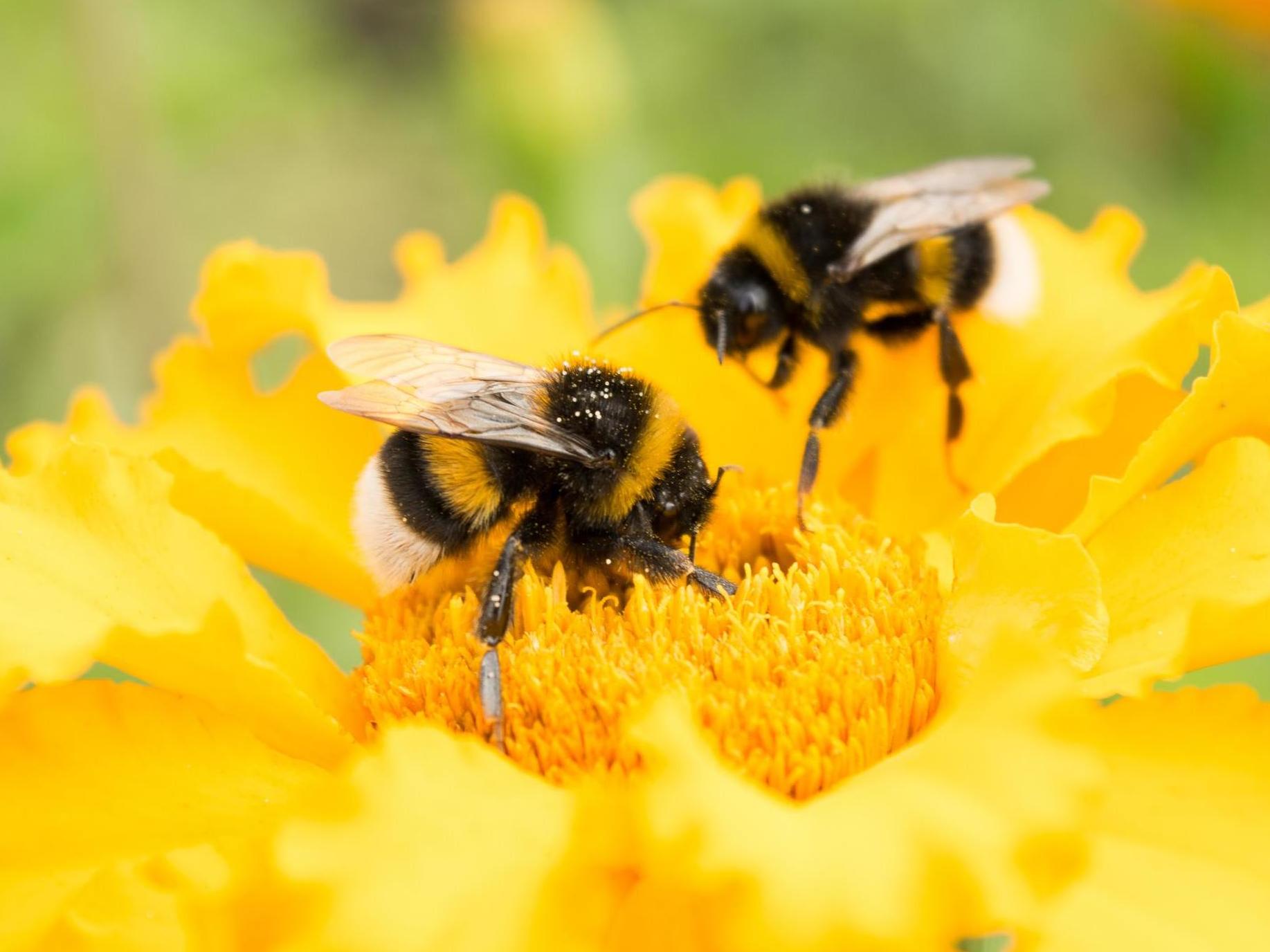Bees are becoming ‘addicted’ to the pesticides blamed for wiping them out, study finds
Bumblebees appetite for harmful chemicals 'ticks certain symptoms of addictive behaviour'

Your support helps us to tell the story
From reproductive rights to climate change to Big Tech, The Independent is on the ground when the story is developing. Whether it's investigating the financials of Elon Musk's pro-Trump PAC or producing our latest documentary, 'The A Word', which shines a light on the American women fighting for reproductive rights, we know how important it is to parse out the facts from the messaging.
At such a critical moment in US history, we need reporters on the ground. Your donation allows us to keep sending journalists to speak to both sides of the story.
The Independent is trusted by Americans across the entire political spectrum. And unlike many other quality news outlets, we choose not to lock Americans out of our reporting and analysis with paywalls. We believe quality journalism should be available to everyone, paid for by those who can afford it.
Your support makes all the difference.The more bees eat pesticides, the more they seem to want. This could be a problem considering these chemicals have been linked with the global decline of these vital pollinators.
A new study has added to a body of evidence suggesting that bees not only enjoy consuming certain pesticides, they experience something comparable to addiction when they do.
British researchers gave bumblebees in ten colonies a choice of two different food sources – one that was just straight sugar solution and one containing neonicotinoid pesticides – over the course of ten days.
Neonicotinoids are a highly controversial group of chemicals that have recently been the target of a near-total EU ban, but are nevertheless still the most widely used pesticides in the world.
Once fed with food containing these pesticides, the bees kept coming back for more, in behaviour that looked remarkably like a human developing some kind of substance addiction.
“Given a choice, naive bees appear to avoid neonicotinoid-treated food. However, as individual bees increasingly experience the treated food they develop a preference for it,” said Dr Richard Gill, who led the study at Imperial College London.
This is particularly intriguing given neonicotinoids’ close chemical relationship to a very familiar addictive substance.
“Interestingly, neonicotinoids target nerve receptors in insects that are similar to receptors targeted by nicotine in mammals,” said Dr Gill.
“Our findings that bumblebees acquire a taste for neonicotinoids ticks certain symptoms of addictive behaviour, which is intriguing given the addictive properties of nicotine on humans, although more research is needed to determine this in bees.”
Over time the bees visited the pesticide-laced food more and the other food less, and had no trouble finding the one they wanted even when the sources were moved around.
The tests they carried out were intended to give the insects a choice about where they wanted to feed, just as they would have in the wild.
“We now need to conduct further studies to try and understand the mechanism behind why they acquire this preference,” said lead author Dr Andres Arce.
The work, published in the journal Proceedings of the Royal Society B, builds on previous research that appeared to show bees preferring food with pesticides in it over uncontaminated sources.
Campaigners welcomed the new findings as more evidence to support the hard-fought ban implemented in April.
“This study further backs the tougher ban on three neonicotinoid pesticides agreed earlier this year. Recent research also found that sulfoxaflor – touted as a replacement for neonics – may harm bees,” said Friends of the Earth campaigner Sandra Bell.
A paper published in mid-August revealed that sulfoxaflor, a chemical that has already been approved for use in several EU nations, has disruptive effects on bumblebee colonies.
“The solution is clear. Instead of replacing one harmful chemical with another the government must use its post Brexit farming policy to help farmers protect their crops without harming bees and other wildlife,” said Ms Bell.
However, Dr Gill offered a more nuanced approach that did not involve an outright ban on neonicotinoids, despite their harmful effects.
“Whilst neonicotinoids are controversial, if the effects of replacements on non-target insects are not understood, then I believe it is sensible that we take advantage of current knowledge and further studies to provide guidance for using neonicotinoids more responsibly, rather than necessarily an outright ban,” he said.
Join our commenting forum
Join thought-provoking conversations, follow other Independent readers and see their replies
Comments